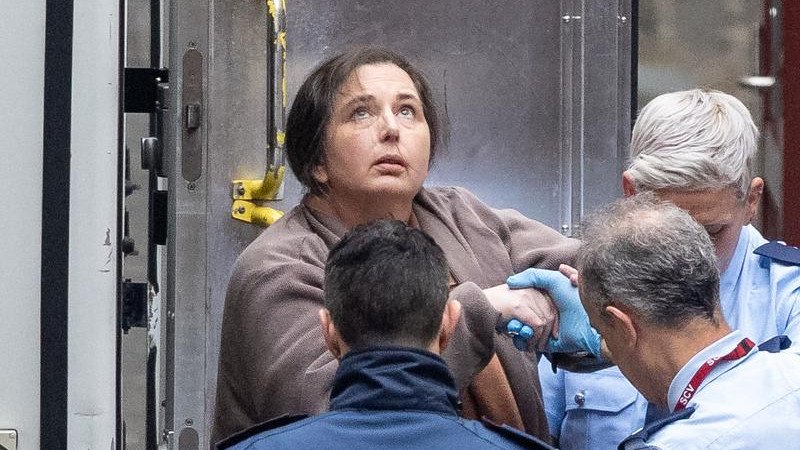Erin Patterson: Mushroom murderer could face harsher sentence as prosecutors weigh an appeal
Erin Patterson’s 33-year minimum jail term could be appealed, as prosecutors argue her ‘cruel and horrific’ crimes deserve no mercy.

Erin Patterson, convicted of murdering three family members with death cap mushrooms, may spend even longer behind bars as Victoria’s Crown prosecutors weigh an appeal against her 33-year minimum sentence.
Prosecutors were dissatisfied with the punishment handed down by Supreme Court Justice Christopher Beale last Monday, believing it may not reflect the gravity of Patterson’s crimes, the Herald Sun reports.
Patterson, who served a fatal beef wellington lunch on July 29, 2023, is also preparing to challenge her convictions.
Sign up to The Nightly's newsletters.
Get the first look at the digital newspaper, curated daily stories and breaking headlines delivered to your inbox.
By continuing you agree to our Terms and Privacy Policy.She was jailed for life for murdering her in-laws, Don and Gail Patterson, both 70, and Gail’s sister, Heather Wilkinson, 66.
Patterson also received a concurrent 25-year maximum sentence for the attempted murder of Heather’s husband, Ian Wilkinson, who fell seriously ill after the lunch but survived.
But Justice Christopher Beale showed Patterson mercy in setting a 33-year non-parole period, noting the stringent conditions she would face in custody.
With time already served, she will be eligible for parole in 2056, at the age of 82.
In August, during sentencing submissions, Crown Prosecutor Jane Warren argued that Patterson should receive a life sentence without any chance of parole.
“It is a crime that is so cruel and so horrific that in our submission, the offender is not deserving of this court’s mercy,” she told the court.
During sentencing, Justice Beale told the court that Patterson has limited contact with other prisoners and it’s likely she would remain in the protective unit for years to come, given her notoriety and extensive media attention on the case.
She is currently being held at a maximum security rating, meaning she is to be in her cell for at least 22 hours a day.
“The harsh prison conditions that you have experienced already and the likely prospect of solitary confinement for the foreseeable future are important and weighty considerations,” he said during the sentencing.
“In my view, the only scope for making them count is by the fixing of a non-parole period.”
While prosecutors were pushing for life without parole, RMIT criminology associate professor Brianna Chesser said the sentence Patterson received was within range.
“Ms Patterson’s conditions in prison weighed heavily on the 33-year non-parole period,” she told AAP.
“It’s closer to 30 (years) than 40 because of the conditions that Ms Patterson is currently facing and is likely to face.”
Patterson has 28 days to lodge an appeal against sentence and conviction but Dr Chesser argued the process might not be straightforward for the jailed killer.
- With AAP
